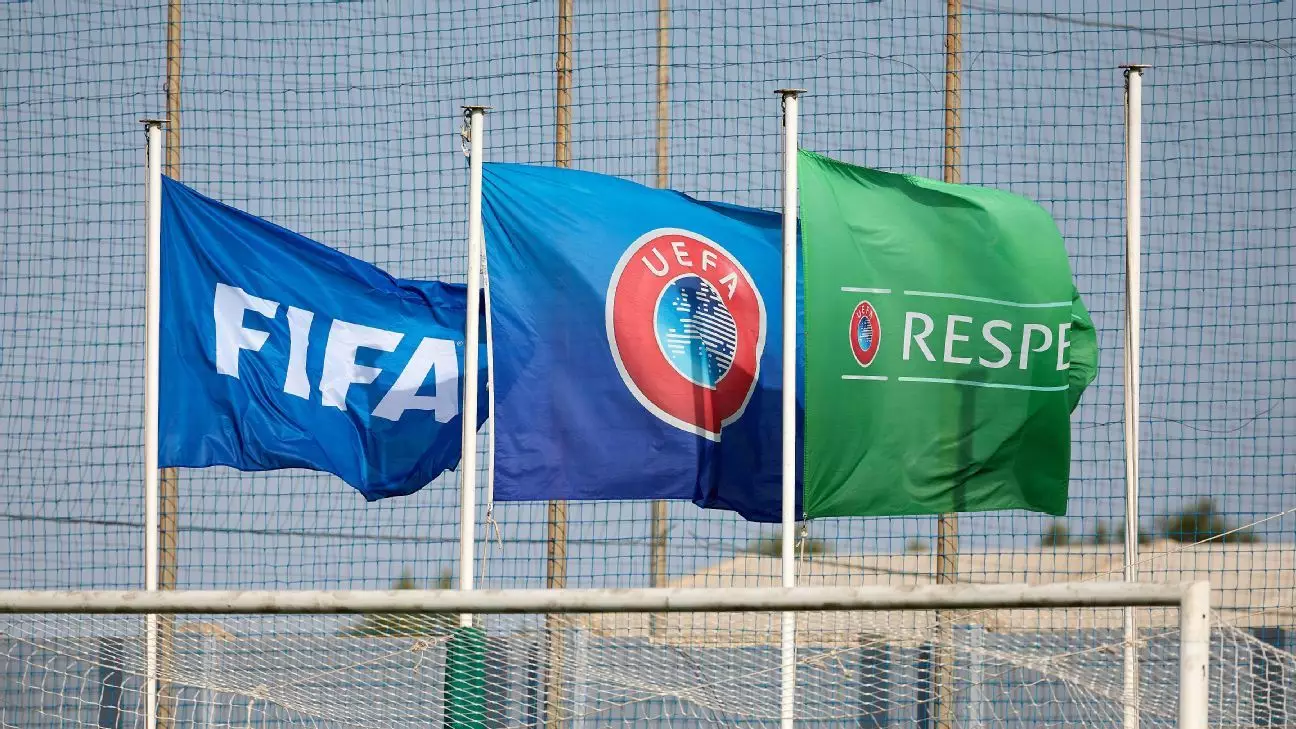The football landscape is once again abuzz with the announcement from A22 Sports regarding their proposal for a new European competition, now branded as the Unify League. Following a pivotal ruling from the European Court of Justice (ECJ) in December 2023, A22 seeks formal recognition from UEFA and FIFA to establish this new league. This proposal emerges amid ongoing tensions and controversies surrounding the original Super League initiative that sought to overhaul European football. By examining their latest proposal and the ensuing reactions, we can better understand not only the implications for European football but also the intricate dynamics involved in its governance.
The ECJ ruling, which claimed that UEFA and FIFA had been “abusing a dominant position,” marked a potential turning point for the Super League. It challenged existing governance frameworks that these bodies have long upheld, branding some rules as “arbitrary.” A22’s position aligns with recent legal findings that call for more inclusive and meritocratic opportunities in football competitions. However, the swift transition from idea to proposal raises concerns about whether A22 is genuinely addressing the needs of the sport or merely attempting to repackage an old concept in light of legal victories.
In its latest announcement, A22 claims to have taken into account feedback from football clubs, leagues, and other organizations, thereby crafting a revised model. The introduction of the Unify League is intended to combat fundamental challenges in the sport, such as the rising costs for fans, player overloads, and the need for greater investment in women’s football. A22 CEO Bernd Reichart stresses that club participation will rely heavily on annual domestic league performance, a nod to the meritocratic values they intend to champion.
One of the intriguing aspects of A22’s updates is its commitment to a mixed form of competition comprising various leagues and tiers. The Unify League would feature four leagues, expanding the initial concept to include 96 clubs, all while ensuring a promotion and relegation system to maintain competitive integrity. This structural diversity could breathe fresh air into the European football competition model, yet skepticism remains regarding how feasible and sustainable this approach truly is.
A noteworthy component of the Unify League proposal is its pledge to create a new streaming service modeled on a free-to-air basis, supported by advertising. This initiative seeks to address accessibility for fans facing increasing subscription costs from existing broadcasting rights. Despite the thoughtful intentions, the long-term viability of such a model is questionable; free-to-air platforms can be financially unstable without solid viewership numbers or consistent advertising revenue.
The transition to a streaming format also introduces complexities, especially given the existing broadcasting partnerships that UEFA has established for its competitions. The ability of A22 to launch an alternative platform that can effectively compete with major broadcasting entities remains to be seen as the landscape for football media rights is fiercely competitive.
The initial backlash faced by the Super League in 2021 remains a significant dark cloud. Many major leagues and organizations, including the Premier League, Bundesliga, and LaLiga, have reaffirmed their opposition to the project. Statements from football executives, like LaLiga president Javier Tebas, reflect a broader skepticism about A22’s intentions and the feasibility of their methods. Tebas’s comment about A22 producing league formats “as if they were churros” underscores a prevalent notion that the proposal might be more about profitability and less about sport integrity.
Overcoming the skepticism entrenched in the football community may prove challenging for A22. If stakeholders view the Unify League as a mere rehash of previous missteps, the proposal may struggle to gain traction.
As A22 Sports steps onto the European football stage once again with its Unify League proposal, it brings both hope and trepidation. While the initiative claims to embrace meritocracy and inclusivity, the overarching sentiment derived from past events suggests a deeply divided response. The way forward for the future of the Unify League will hinge on transparency, collaboration, and a commitment to the genuine needs of clubs, players, and fans alike. Balancing ambition with conscientious governance is paramount, as the formation and acceptance of any new league model inevitably shape the future of European football.

Leave a Reply